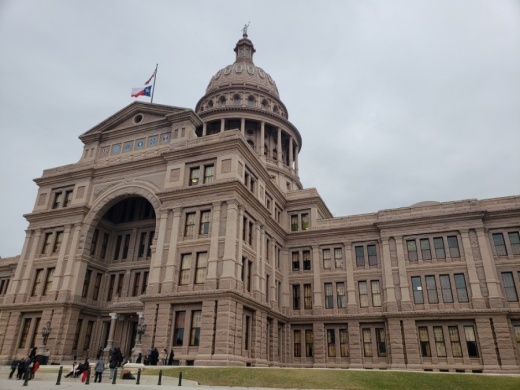The biennial gathering of legislators will look differently this year due to the ongoing coronavirus pandemic. The session could have a virtual component, and members of the public may or may not be allowed to provide in-person testimony.
Despite this, state Sen. Angela Paxton, R-McKinney, said her office will remain open so she can connect with her constituents.
“Public input is the heartbeat of representation,” she said
Ceremonial activities that would normally take place during the first 60 days of the session will likely not occur, Paxton said; however, some committees, such as those that oversee redistricting and finance, will continue to meet during that time, she added.
Some of the key topics expected to be tackled by legislators this session include COVID-19 response; redrawing congressional maps based on the results of the 2020 U.S. Census; public and higher education; health care; and public safety, particularly as it relates to racial justice.
Among Paxton’s top priorities are continued funding for public education, which saw historic gains during the last session with the passage of House Bill 3, which guaranteed increased state funding for public schools.
“I will work very hard to make sure we protect the gains we made with HB 3,” she said.
The most pressing item on the state’s agenda is approval of the biennial budget, which is likely to be extremely contentious this year given the fiscal strain imposed by COVID-19, according to state Rep. Angie Chen Button, R-Richardson.
The state comptroller is estimating a $4.6 billion budget shortfall, Button said, although there are rumors this estimate might be high. The key to solving the economic crisis is to ensure the state can continue to attract new businesses as well as ensure those already here can survive and thrive, she said.
“I truly believe that in order to fight the shrinking pizza, we have to grow the pizza pie. ... The economy is still going strong, even in this challenging environment,” she said.
State Rep. Jeff Leach, R-Plano, said there is no better time than now to lean on the state’s Rainy Day Fund as a way to alleviate the economy.
“The very purpose of the Economic Stabilization Fund was to fill holes in the budget when we have severe dips in our economy in Texas,” he said. “If we don’t use it this session ... then we need to just get rid of the fund and give that money back to hardworking Texans.”
Ensuring widespread health care coverage is directly tied to the state’s ability to recover from the pandemic, said state Rep. Ana-Maria Ramos, R-Richardson. More than 25,000 Texans have died from COVID-19, due in large part to the lack of affordable health care, she said.
“Once we have people that are educated and healthy, we will continue to create those jobs and bring those great companies to Texas,” she said.
The state should lean on federal funding in order to maximize the number of insured residents, Ramos said. Her conservative colleagues on the call, Button and Leach, said they were hesitant to rely on federal dollars because there are “strings attached."
“There is no such thing as free money,” Leach said. “We’ve got to have a discussion about Medicaid, and we will, but we have to continue to invest and think outside the box about how to provide affordable, good strong, health care options to ... Texans.”
Lawmakers were divided along party lines when it came to whether county judges should be able to make their own decisions regarding coronavirus-related shutdowns. Ramos said limiting the latitude of county commissioners and judges was an attack on local control.
“The more we take away local control, the more we take away your voice,” she said.
Legislators have already begun filing bills to be considered during the session, which is set to begin Jan. 21 and end May 31.





